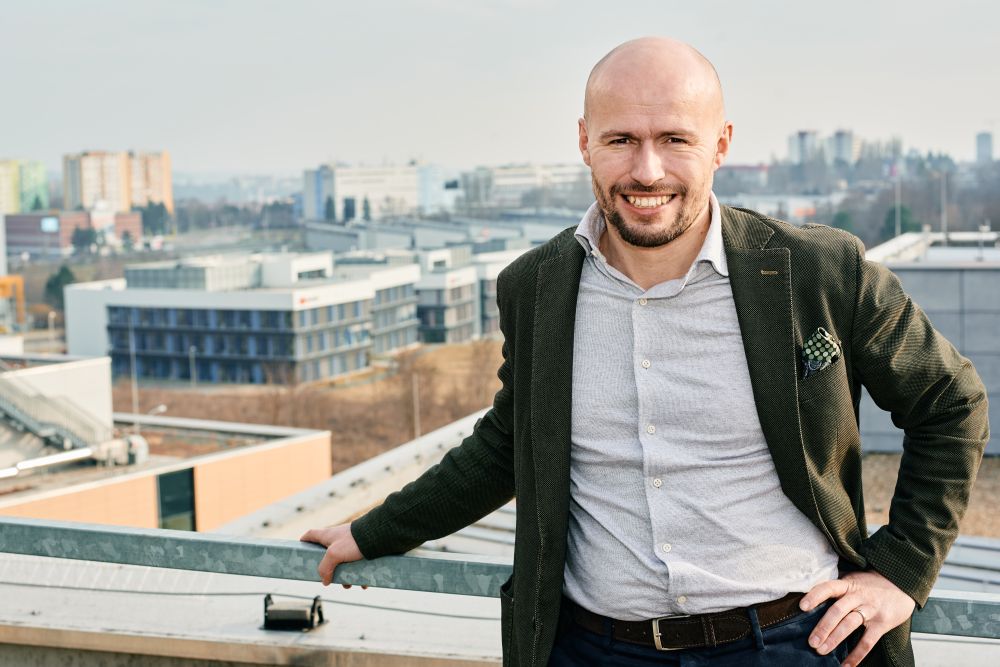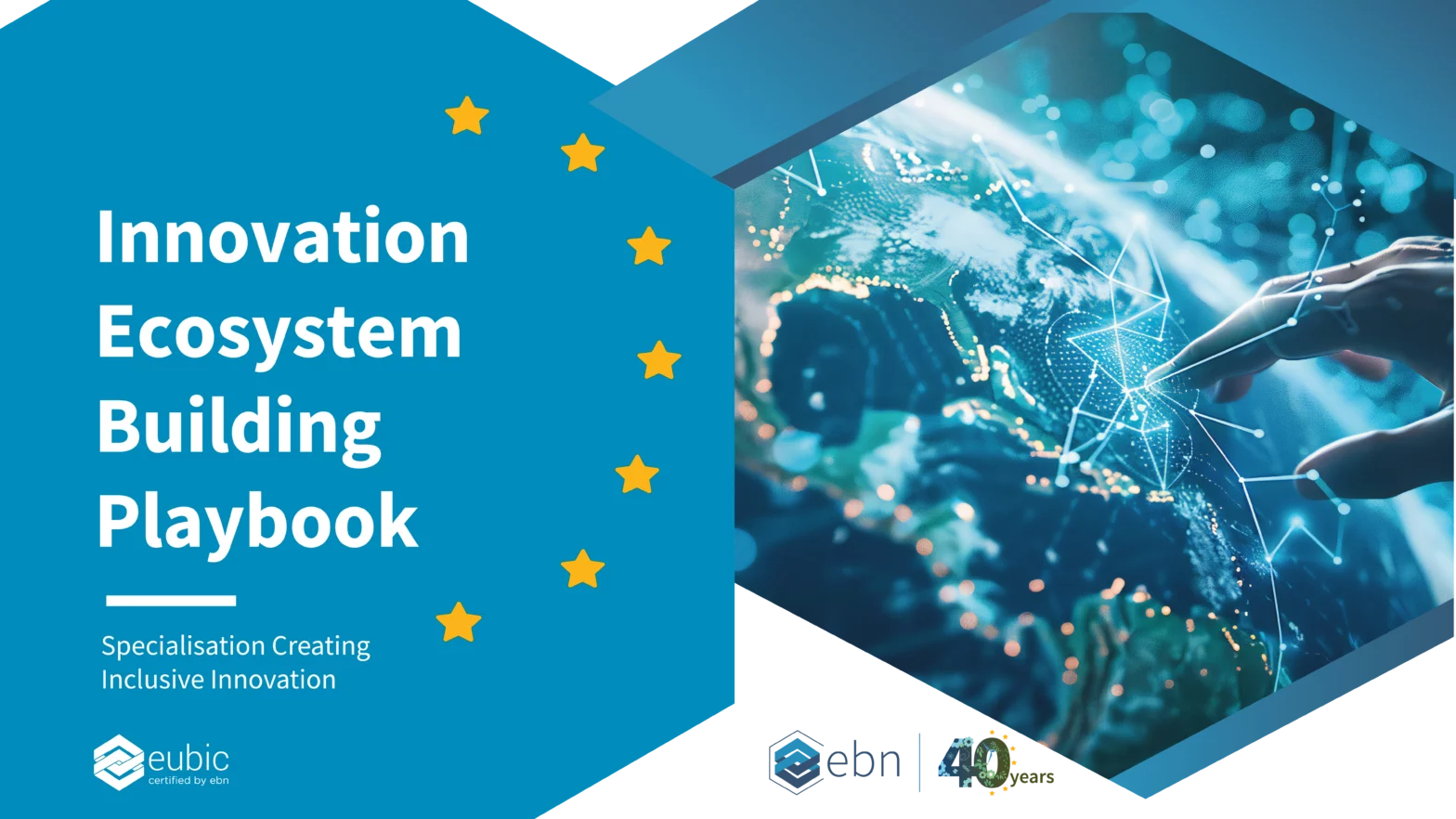Innovation in Ukraine, Europe ahead of #EBN2023 - Interview with CEO of EU|BIC JIC, Petr Chládek

Below is a translated excerpt of an interview by #Brnoregions with Petr Chládek, CEO at EU|BIC JIC, co-host of the 2023 EBN Congress
- To give the whole topic some context, what level was the Ukrainian startup environment on prior to the Russian invasion?
We spoke with the representatives of the Ukrainian Startup Fund right after the beginning of the Russian aggression. Prior to the war, the fund had finances invested in several hundreds of startups all over Ukraine – in companies dealing in AI or cybersecurity. The Ukrainians have great IT skills, and the Ukrainian startup environment is quite developed. The World Bank plays an important role as well, as it invested there and motivated the Ukrainian government to co-invest. The government even established a ministry for digitalization – an area where Ukraine outperforms us.
As for the current status of things, we’ve only received incomplete information about what the system looks like. Some employees left their jobs to enlist in the army, some companies have been forced to partially move to Lviv, while others have been steadily returning.
- You have a lot of faith that cooperation between individual ecosystems will bring about major change. Where does that come from?
We believe in a developed Europe, built on knowledge, people who create new products, and new companies that solve actual problems. And we know that the strength of Europe will depend on the scope of its cooperation and integration. In fact, this is the whole idea of Europeanism. JIC’s work with companies transcends borders; companies need to have global potential and rely on cooperation from all levels.
And if we know there are talented people or companies in neighbouring countries that we can cooperate with, we need to make that happen – it’s for the good of our region, Czech Republic, Central Europe, and even Europe as a whole! Cooperation is essential for us. We’ve always cooperated with others and done our best to export the idea behind innovation centres to other Czech regions.
After all, JIC has been operating its Ynovate platform in cooperation with another eight European regions, and it’s even a part of the EBN European network of innovation centres.
Next year, we’re going to organize the very first EBN congress in our country, where a part of the focus will be on cooperating with Ukraine. We’d like to motivate innovation centres throughout Europe to establish partnerships with innovation agencies and startup centres in Ukraine. We’ve been working hard on a proposal for a shared agenda to submit to the European Commission, which may then create a financial mechanism to become a part of the future “Marshall Plan” – a topic of much discussion for some time now. To put it simply, it’s important to invest in new roads and rebuilding houses as well as in things that will strengthen Ukrainian society – things that may generate some wealth while bringing it closer to Europe.
- And would this also benefit the benefactors in this cooperation?
Just one example here: we are negotiating with a company from Ukraine that – for security reasons – needs to relocate some of its production or development capacities to Central Europe. This biotech company plans to hire dozens of highly-qualified experts in the development of medicine here, so this is one such beneficial outcome of these efforts. We don’t even have such companies in the Czech Republic, you know.
And the same thing is possible in a number of other sectors as well. If the “Marshall Plan for Ukraine” works well, a wide range of Czech companies will be able to invest in Ukraine. It may be an opportunity for them in smart agriculture, water and soil purification, the military, the arms industry, cybersecurity, and so on. Quite a lot of segments, actually.
Many companies will definitely want to relocate. And when a commercially interesting idea emerges, we need to be ready to mobilize local investors to finance these projects. Things change every day, and our plans for the future from March have changed drastically since then. That’s why it’s so important to just remain ready and react to what actually happens.
This is a sensitive topic because thinking of war in terms of opportunities is very painful. Undoubtedly, though, the situation has done a lot to change the image of Ukraine. Czechs in particular used to simply think of Ukrainians as an accessible labour force. Then we suddenly realized that their country may look very different, so it’s a bit about raising people’s awareness. There are countries in Western Europe, Baltic countries and even Poland, that have been cooperating with Ukraine a lot more and for a longer time. We’ve been hesitating, which may change now.
- The Ukrainian Startup Fund tried to get a lot of startups involved in military IT. Can this experience solidify their startup system?
This is just speculation, but crises generally make people stronger. Here’s a very loose analogy with the system in Israel. Its army has a special unit with only the smartest people, and a major part of Israeli startups was established by them. We may see something similar happen in Ukraine. For now, however, it’s important for Ukraine to defend its freedom and the opportunity to choose its own path. And I think it’s our duty to support them. Of course, JIC cannot develop weapons or finance the arms industry. What we can do, though, is offer cooperation with mutual benefits. That’s our job, and that’s what we’re going to do.
- Do you believe that the post-war Ukrainian ecosystem will be stronger than ever?
Whether from Europe or the USA, the people from the global innovation community we’ve been talking to about Ukraine have all changed their opinion about this country. If there’s a will to from the USA, the European Commission or individual European countries to support this cooperation, it may incredibly kick-start the development of Ukraine, boosting the whole country as well as the rest of Europe with it. After all, it has 40 million inhabitants, and it’s the largest European country if we leave out Russia. This country is very strong, so the economic, as well as the geopolitical situation, may change, and the centre of Europe may shift a bit as well. It may be worrying for some countries, but this shouldn’t stop us from trying to partially redefine Europe the way we know it.







